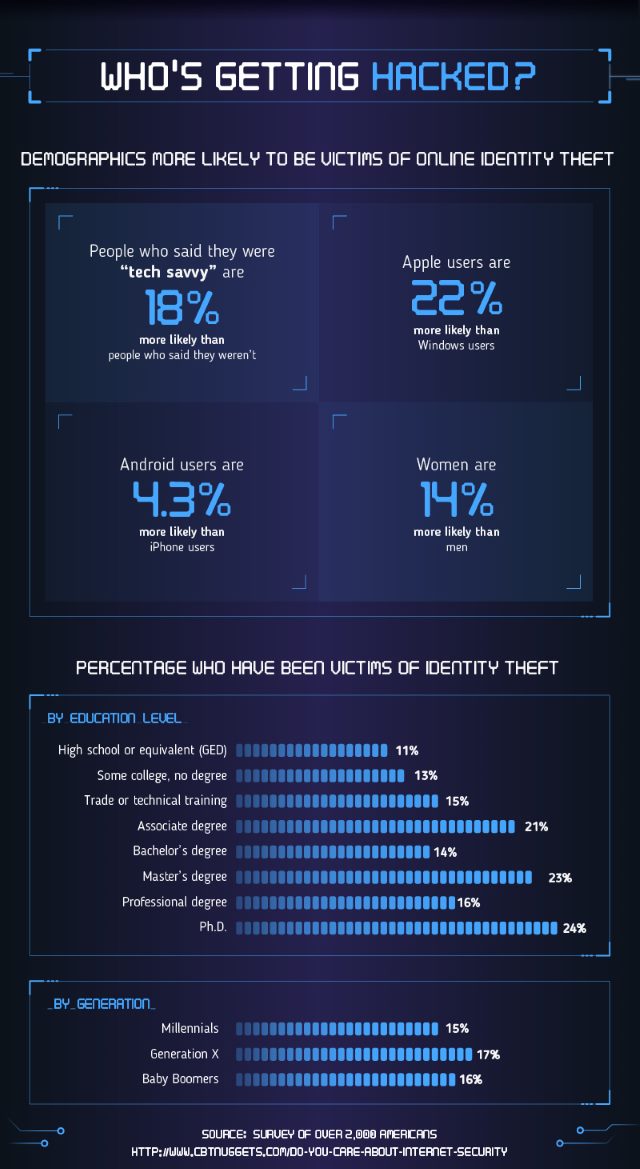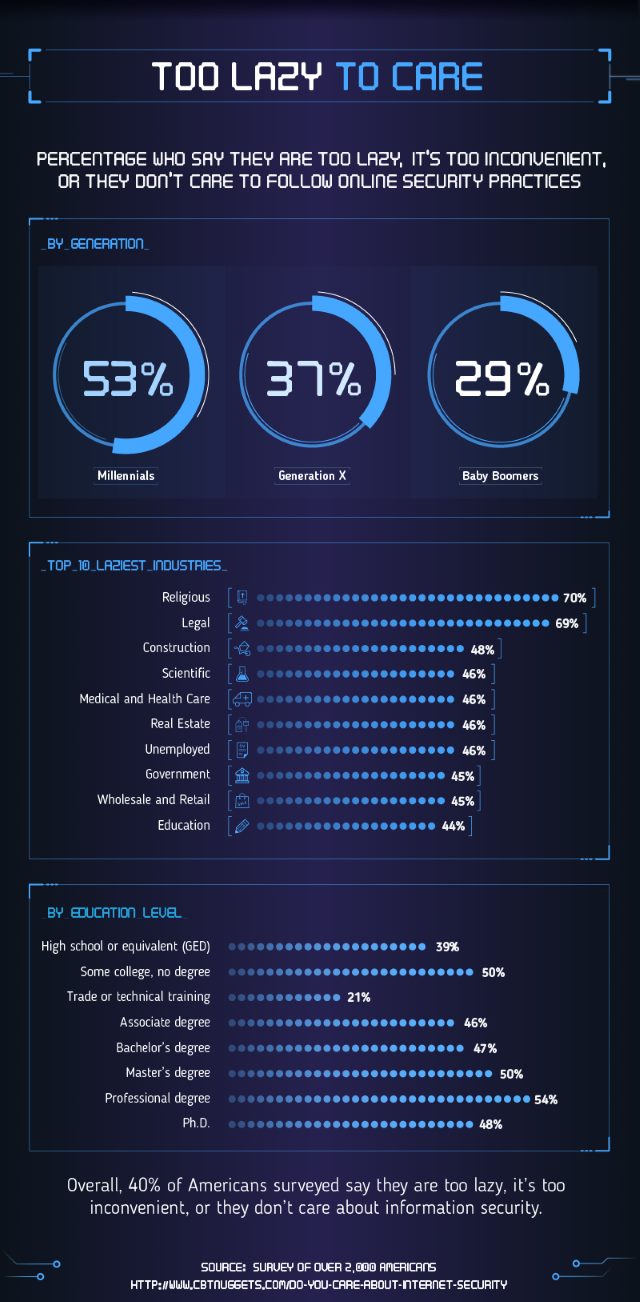People who identify as 'tech savvy' are 18 percent more likely to suffer ID theft

Identity theft is a growing problem, but who is falling victim to online ID fraud, why is it still happening, and how can you protect yourself?
IT training specialist CBT Nuggets has carried out some research among more than 2,000 people in the US to find out, with some intriguing results.
They discovered that people who self-identified as 'tech savvy' are 18 percent more likely to be victims of online identity theft than those who didn't. Additionally, respondents with PhDs are more frequently victims than high school graduates. Plus Apple users are 22 percent more likely than Windows users to be victims of ID theft. That flips around with mobiles though, with Android users 4.3 times more likely to suffer ID theft than iOS users.
Millennials are less likely to suffer identity theft than baby boomers or generation Xers, but this may be simply because they've been on line for a shorter amount of time and their data is less exposed.
Yet despite the risks people continue to re-use passwords. Self-identified tech-savvy folk are just over six percent more likely than the non-tech crowd to have unique passwords. Android users are almost 11 percent more likely than iPhone users, Windows users are over 12 percent more likely than those on a Mac, and women are slightly more likely than men.
When looked at by generation though, millennials -- the least likely generation to have their identity stolen -- are the least likely to use a unique password. Baby boomers lead the way in this category, with 85 percent reporting using a unique password for their online accounts.
When asked why they fail to follow basic security recommendations, 40 percent of Americans say it's because they're too lazy, find it to be too inconvenient, or don't really care. This attitude is strongest among millennials at 53 percent and lowest among baby boomers at 29 percent.
"Our goal was to study how Americans' feelings about online information security relate to their self-reported online behavior and attitudes, particularly around the area of identity theft," says Tom Dehnel, consultant for CBT Nuggets. "Our hypothesis was that different demographic groups would experience different rates of identity theft, and would have different levels of knowledge about how to keep their personal information safe online. And when we analyzed the results of our survey of over 2,000 people, we found some interesting and statistically significant differences between groups."
You can read more about the results on the CBT Nuggets blog and there's a look at some of the findings in infographic form below.


Image Credit: Minerva Studio / Shutterstock